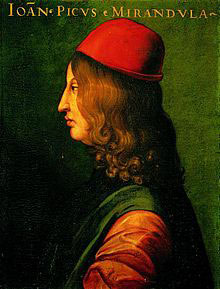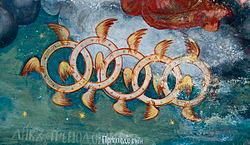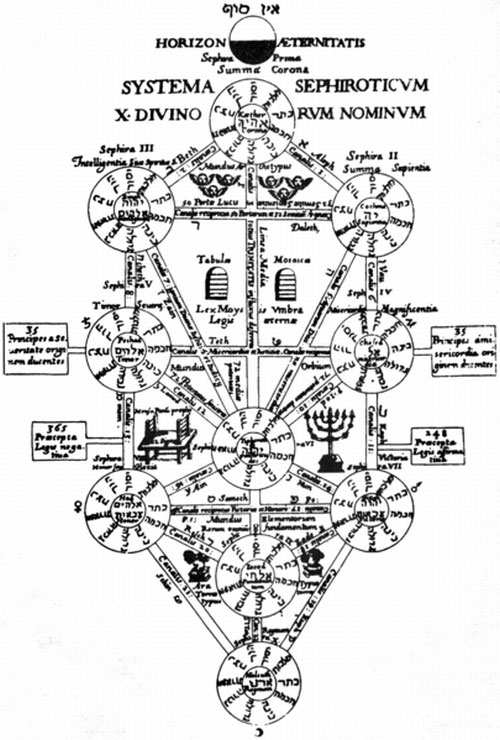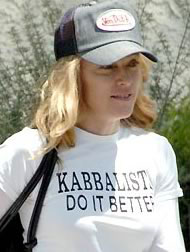-
CHRISTIAN KABBALAH
From the Rennaisance onwards Jewish Kabbalistic texts entered non-Jewish culture. The Kabbalistic tradition was adopted by Western Esoteric tendencies. Christian intellectuals developed an interest in Kabbalah. Yochanan Alemanno (1435-after 1504), the Italian Jewish humanist, translated Kabbalistic texts to Latin and influenced the Italian philosopher Pico della Mirandola (1463-1494), who in turn, was instrumental in spreading Kabbalistic ideas. Syncretistic traditions of "Christian Kabbalah" and "Hermetic Kabbalah" developed independently, reading the Jewish texts as universal, ancient wisdom.
 Giovanni Pico Della Mirandola, Portrait from the Uffizi Gallery, Florence
Giovanni Pico Della Mirandola, Portrait from the Uffizi Gallery, Florence Ezekiel's Wheel, st. John the Baptist Church, Kratovo, Macedonia
Ezekiel's Wheel, st. John the Baptist Church, Kratovo, Macedonia.jpg) A copy of Matthaus Merian's engraving of Ezekiel's vision, Iconum Biblicarum (1670)
A copy of Matthaus Merian's engraving of Ezekiel's vision, Iconum Biblicarum (1670) -
HERMETIC KABBALAH
With the decline of Christian Kabbalah during the Age of Reason, Hermetic Kabbalah continued as a central underground tradition in Western esotericism. The adoption of Kabbalah by 18th century Western esoteric schools of thought was instrumental in creating the dualistic lexicon that paved the way for the French Revolution.
Through these non-Jewish associations with magic, alchemy and divination, Kabbalah acquired some popular occult connotations, which were forbidden within Judaism. Today, many publications on Kabbalah belong to the non-Jewish New Age and occult traditions of Kabbalah and do not give an accurate picture of Judaic Kabbalah.
 Athanasius Kircher's 1652 'Tree of Life', arranged according to the Kabbalistic Sephirot
Athanasius Kircher's 1652 'Tree of Life', arranged according to the Kabbalistic Sephirot Madonna promoting Kabbalah
Madonna promoting Kabbalah